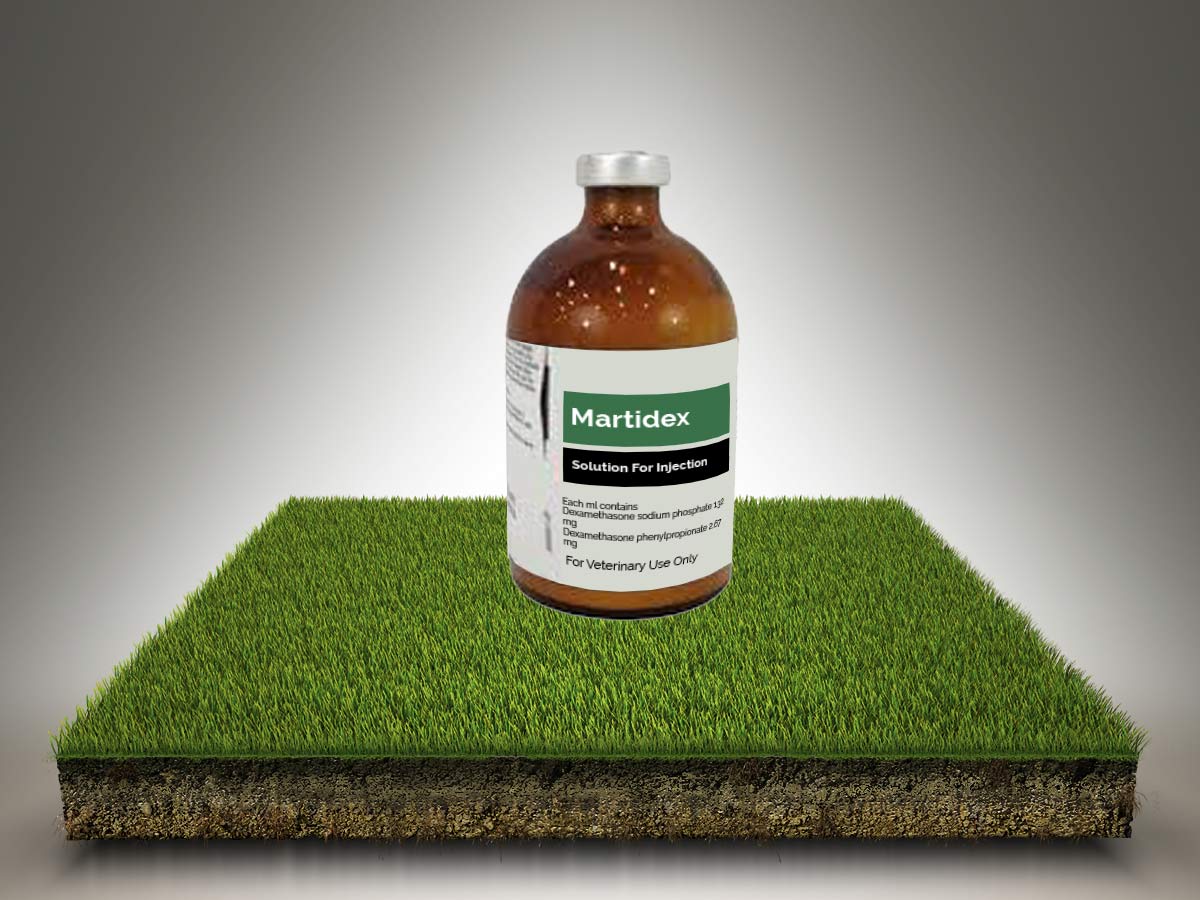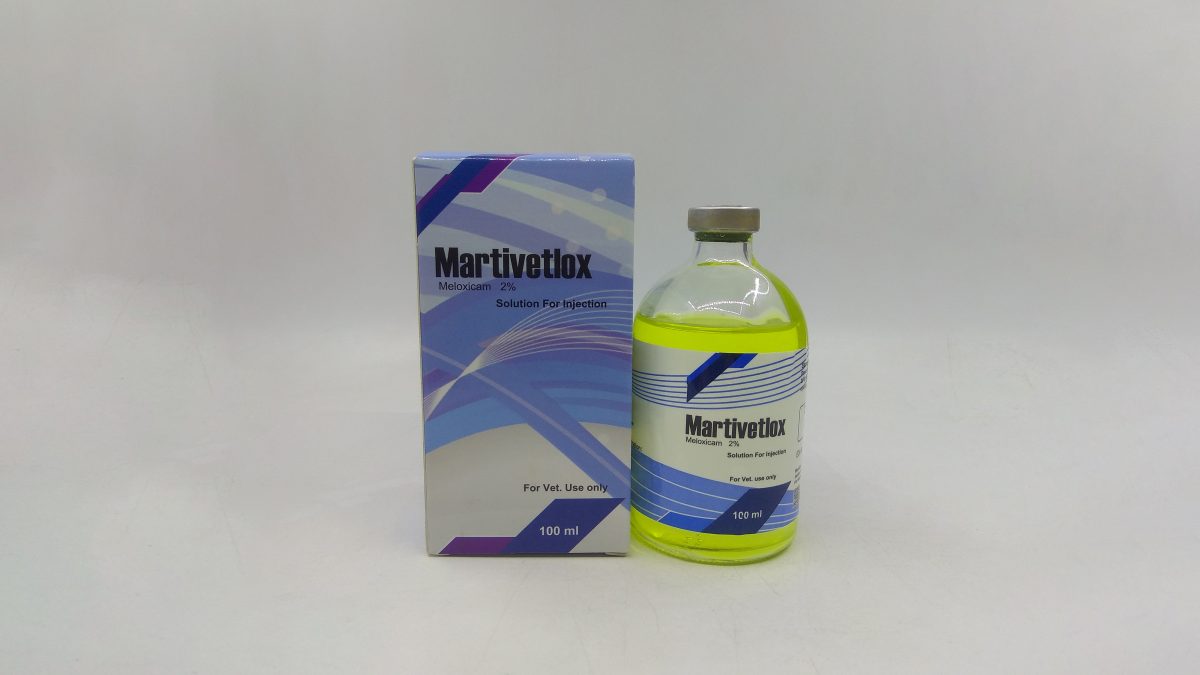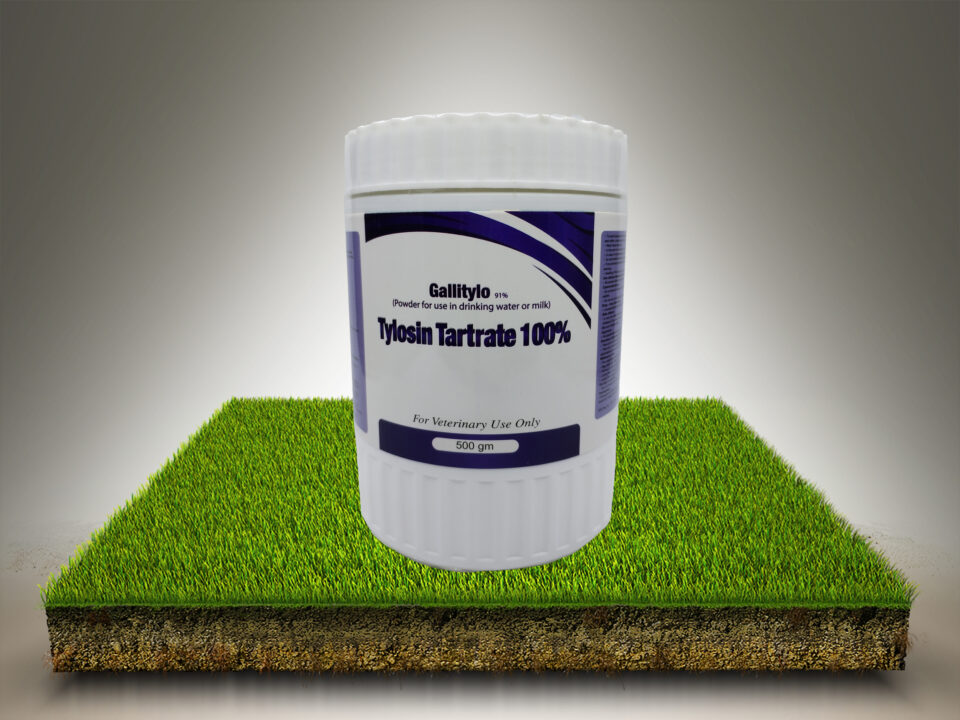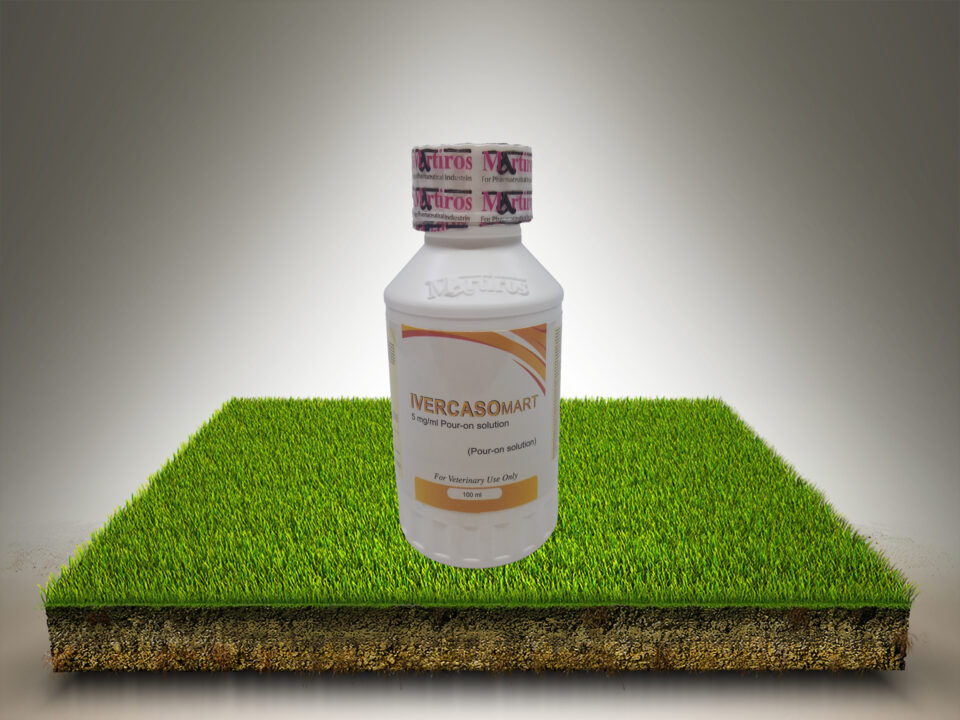
Martidex

Apramart 80%
Solution For Injection
For Veterinary Use Only
Composition :
Each ml contains
Meloxicam 20 mg
Properties:
Meloxicam is a Non-Steroidal Anti-Inflammatory Drug (NSAID) of the oxicam class which acts by inhibition of prostaglandin synthesis, thereby exerting anti-inflammatory, anti-exudative, analgesic and antipyretic effects. It reduces leukocyte infiltration into the inflamed tissue. To a minor extent it also inhibits collagen-induced thrombocyte aggregation. Meloxicam also has anti-endotoxic properties because it has been shown to inhibit production of thromboxane B2 induced by E. coli endotoxin administration in calves, lactating cows and pigs.
Indications:
Cattle:
For use in acute respiratory infection with appropriate antibiotic therapy to reduce clinical signs in cattle.
For use in diarrhoea in combination with oral re-hydration therapy to reduce clinical signs in calves of over one week of age and young, non-lactating cattle.
For adjunctive therapy in the treatment of acute mastitis, in combination with antibiotic therapy.
For the relief of post-operative pain following dehorning in calves.
Pigs:
For use in non-infectious locomotor disorders to reduce the symptoms of lameness and inflammation.
For adjunctive therapy in the treatment of puerperal septicaemia and toxaemia (mastitis-metritis- agalactia syndrome) with appropriate antibiotic therapy.
Horses:
For use in the alleviation of inflammation and relief of pain in both acute and chronic musculo-skeletal disorders.
For the relief of pain associated with equine colic.
Target Species:
Cattle, Pigs and Horses
Dose for active ingredient:
Cattle: Single subcutaneous or intravenous injection at a dosage of 0.5 mg meloxicam/kg body weight
Pigs: Single intramuscular injection at a dosage of 0.4 mg meloxicam/kg body weight
Horses: Single intravenous injection at a dosage of 0.6 mg meloxicam/kg body weight
Dose for whole product:
Cattle: 2.5 ml/100 kg body weight in combination with antibiotic therapy or with oral re-hydration therapy, as appropriate.
Pigs : 2.0 ml/100 kg body weight in combination with antibiotic therapy, as appropriate.
Horses: 3.0 ml/100 kg body weight.
Warnings:
If adverse reactions occur, treatment should be discontinued and the advice of a veterinarian should be sought.
Avoid use in very severely dehydrated, hypovolaemic or hypotensive animals which require parenteral rehydration, as there may be a potential risk of renal toxicity.
In case of inadequate relief of pain when used in the treatment of equine colic, careful re-evaluation of the diagnosis should be made as this could indicate the need for surgical intervention.
Contra-indications
- Do not use in horses less than 6 weeks of age.
- Do not use in animals suffering from impaired hepatic, cardiac or renal function and haemorrhagic disorders, or where there is evidence of ulcerogenic gastrointestinal lesions.
- Do not use in case of hypersensitivity to the active substance or to any of the excipients.
- For the treatment of diarrhoea in cattle, do not use in animals of less than one week of age.
Side-Effects:
In cattle and pigs, subcutaneous, intramuscular as well as intravenous administration is well tolerated; only a slight transient swelling at the injection site following subcutaneous administration was observed in less than 10% of the cattle treated in clinical studies.
In horses, a transient swelling at the injection site can occur but resolves without intervention.
In very rare cases anaphylactoid reactions which may be serious (including fatal) may occur and should be treated symptomatically.
Withdrawal Periods:
Cattle: Meat and offal: 15 days Milk: 5 days
Pigs: Meat and offal: 5 days
Horses: Meat and offal: 5 days.
Not authorised to use in horses producing milk for human consumption.
Storage:
Store in dry dark and place at temperature not exceeding to 30 o.
Packaging:
Vial of 50,100 and 250 ml




